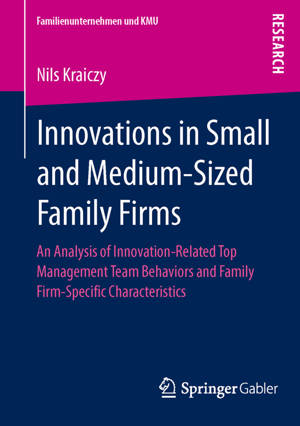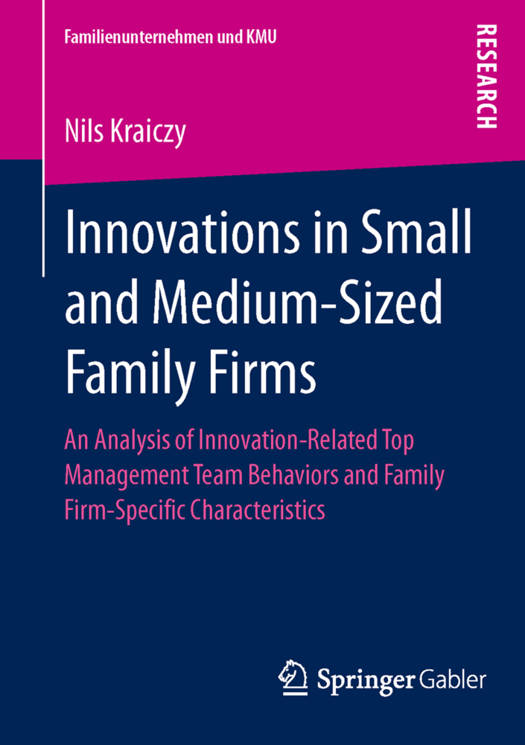
- Retrait gratuit dans votre magasin Club
- 7.000.000 titres dans notre catalogue
- Payer en toute sécurité
- Toujours un magasin près de chez vous
- Retrait gratuit dans votre magasin Club
- 7.000.0000 titres dans notre catalogue
- Payer en toute sécurité
- Toujours un magasin près de chez vous
Innovations in Small and Medium-Sized Family Firms
An Analysis of Innovation Related Top Management Team Behaviors and Family Firm-Specific Characteristics
Nils KraiczyDescription
Small and medium-sized firms are a prevalent organizational form in Germany. Their importance for the German economy is indisputable. Most of them are global market leaders in their niches and are considered to be a force for innovation in the German economy. The ability to be innovative in niche markets has been identified as the antecedent of their strong, or even dominant, competitive positions in their industries. The driver of this innovation success may well be the family, which distinguishes family firms from non-family firms. Nils Kraiczy analyzes if a family influences innovation in a family firm and if this influence has only positive effects. The dissertation focuses on the impact of top management teams on innovations interacting with family firm-specific characteristics. The author shows the complexity of family influence by presenting different effects of each investigated family firm-specific characteristic on the relationship between top management team behavior andinnovation.
Spécifications
Parties prenantes
- Auteur(s) :
- Editeur:
Contenu
- Nombre de pages :
- 173
- Langue:
- Anglais
- Collection :
Caractéristiques
- EAN:
- 9783658000622
- Date de parution :
- 04-01-13
- Format:
- Livre broché
- Format numérique:
- Trade paperback (VS)
- Dimensions :
- 148 mm x 210 mm
- Poids :
- 240 g

Les avis
Nous publions uniquement les avis qui respectent les conditions requises. Consultez nos conditions pour les avis.






